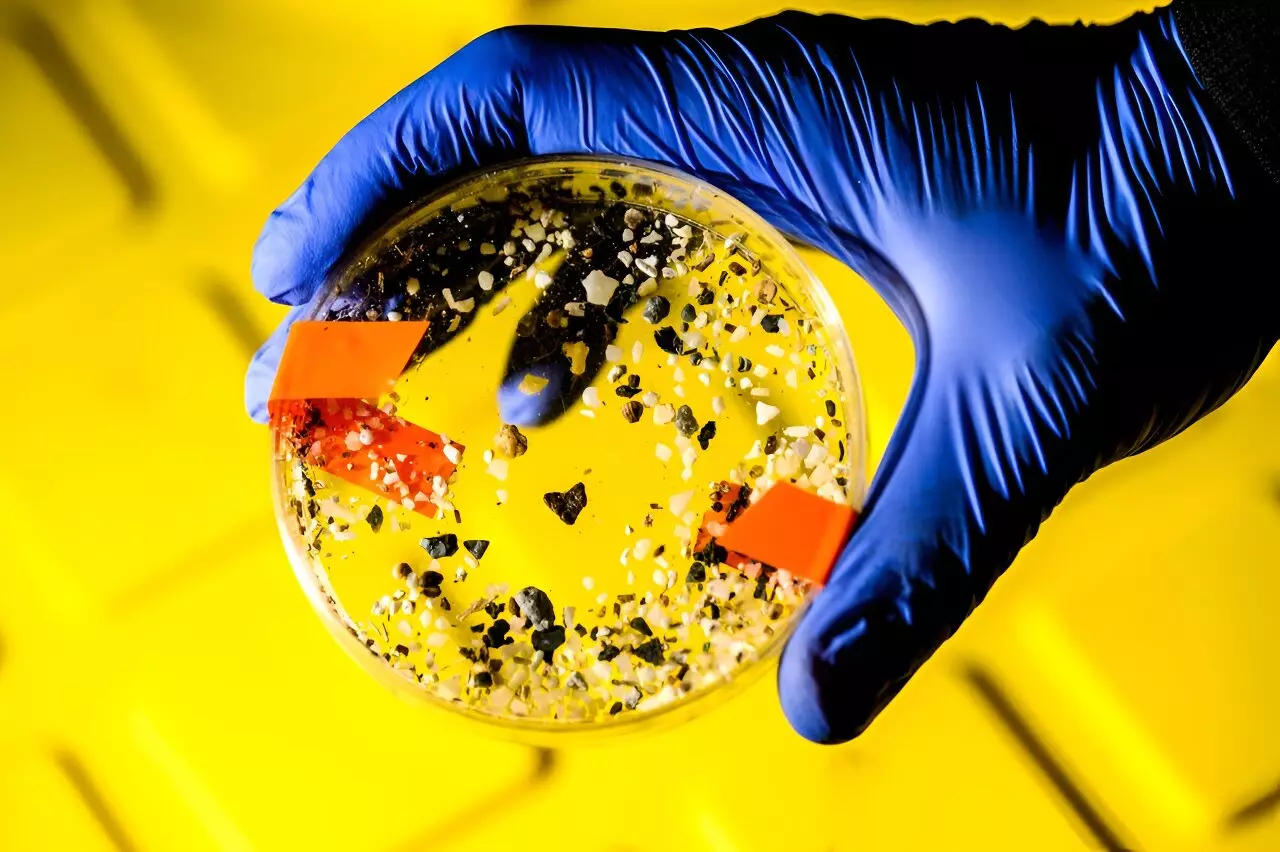The detrimental effects of plastic pollution in the ocean extend beyond harming marine life. A recent study, co-authored by Northeastern researcher Aron Stubbins, has revealed that microplastics can hinder the ocean’s ability to mitigate the climate crisis by impeding the process of carbon sequestration. This process, which involves phytoplankton sinking to the ocean depths, plays a crucial role in removing carbon dioxide from the atmosphere. Stubbins explains that microplastics alter the buoyancy of phytoplankton, slowing down the rate at which carbon is transferred from the sea surface to deeper layers.
The traditional carbon sink process in the ocean involves the formation of “marine snow” through the aggregation of dead phytoplankton, which then sink to the ocean floor. However, the presence of microplastics disrupts this process by making the marine snow more buoyant. As Stubbins describes, phytoplankton growing on microplastics experience changes in buoyancy upon death, leading to a slower sinking rate. This reduction in sinking speed, as evidenced by the study’s experimental results, hampers the efficiency of carbon capture and storage by the ocean.
Another significant finding of the study pertains to the impact of microplastics on nutrient availability for phytoplankton. When exposed to sunlight, microplastics dissolve and release organic carbon that bacteria utilize as a food source. However, this process results in a decrease in vital nutrients such as nitrogen and phosphorus, which are essential for phytoplankton growth. As a consequence, phytoplankton, responsible for capturing carbon from the atmosphere, are deprived of nutrients, thus impeding the biological carbon pump’s efficacy.
Stubbins emphasizes the growing ubiquity of microplastics in the ocean, raising concerns about their potential threat to critical global processes like the carbon cycle. With concentrations of microplastics on the rise, the study underscores the urgent need to address this environmental issue. The researchers highlight the importance of understanding how microplastics may compromise the ocean’s capacity to sequester carbon and stress the significance of further investigation into determining a critical threshold for microplastic pollution.
While the study sheds light on the adverse effects of microplastics on carbon sequestration in the ocean, Stubbins acknowledges the need for additional research to fully comprehend the extent of these impacts. Scientists must continue to explore the repercussions of microplastic pollution on marine ecosystems and develop strategies to mitigate its consequences. Efforts to curb plastic pollution and promote sustainable practices are imperative to safeguard the ocean’s vital role in regulating the Earth’s climate.
The study’s findings highlight the multifaceted impact of microplastics on the ocean’s carbon sequestration process. By impeding phytoplankton sinking rates and disrupting nutrient availability, microplastics pose a significant threat to the ocean’s ability to mitigate the climate crisis. Addressing this environmental challenge requires collective action to reduce plastic pollution and preserve the health of marine ecosystems for future generations.



Leave a Reply